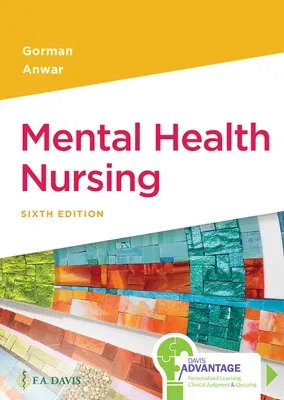Here's the must-know information LPN/LVN students need to care for
patients with mental health disorders where they'll encounter them?in
general patient care settings.
An easy-to-read, conversational writing style shows you how to recognize
and respond to the most important mental health issues. You'll also
explore important communication techniques, ethical and legal issues,
and alternative and complementary treatments. Coverage of nursing
interventions, basic psychiatric nursing skills, and psychopharmacology
prepares you for the NCLEX-PN(R) exam and clinical practice.
Better than the mental health chapter from a typical
textbook*"Everything you need to learn about mental health."*--Lisa
J., Online Student Reviewer
Perfect*"Easy to study, love it."*--Liza, Online Student Reviewer
-
Expanded! "LPN/LVN Connections," a consistent, LPN/LVN-focused
approach to design, organization, and features, makes F.A. Davis texts
easier for students and instructors to use across the curriculum
-
Updated! The latest knowledge and practices in the field,
including revisions from the DSM-5-TR 2022
-
New & Updated! Coverage of the impact of the COVID-19 pandemic on
anxiety and depression, the opioid crisis, and mental illness in the
homeless and veteran populations, and systemic racism in health care
-
New! "Patient Education" and "Evidence-Based Practice" boxes
-
Full-color illustrations, tables, bulleted lists, and a
reader-friendly writing style to make concepts easy to understand
-
Focus on the new, NCLEX-PN(R) test plan
-
Coverage of mental health conditions across the lifespan
-
Care plans with detailed descriptions of specific interventions and
expected outcomes
-
Content on specific nursing interventions and basic psychiatric
nursing skills
-
Coverage of psychopharmacology, including must-know side effects
-
Case studies with critical-thinking questions to emphasize
clinical-reasoning skills
-
Crucial information on palliative and restorative care for long-term
care settings
-
Discussions on alternative treatment modalities to facilitate
communications with people of different religious and cultural
backgrounds as well as descriptions of religious and cultural beliefs
and their impact on mental health and treatment

